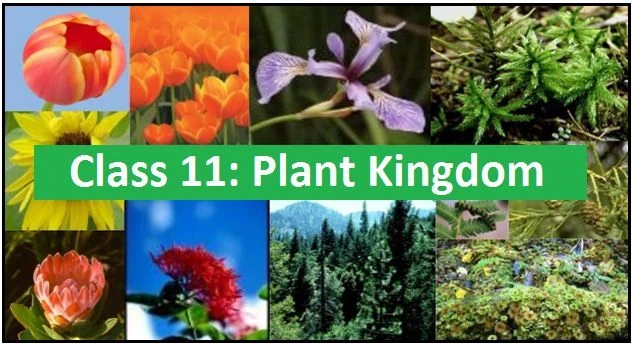Here you will get the NCERT Solutions for Class 11 Biology chapter 3, Plant Kingdom. Each solution is explained in a way to help students easily understand concepts used in it.
Jagranjosh is always committed to bring the most appropriate and authentic study material which could make studies a more interesting and engrossing task for students. Our subject experts work their best to deliver the flawless content.
Students who are having trouble finding the right and simple answers for questions given in Class 11 Biology chapter, Plant Kingdom, can use the answers given here as referral answers. Solving the NCERT exercise questions gives you enough practice to solve any other problem asked in the exams. This will help you assure positive results.
Some of the questions and their solutions from NCERT Solutions for Class 11: Plant Kingdom, are as follows:
Q. What is the basis of classification of algae?
Ans. Algae are classified on the basis of type of the pigments present in them. They are divided into three main classes – Chlorophyceae, Phaeophyceae, and Rhodophyceae.
- Chlorophyceae: They are usually green in colour due to the presence of pigments chlorophyll a and b. Chlorophyceae are also called ‘green algae’. Some commonly found green algae are: Chlamydomonas, Volvox, Spirogyra, etc.
- Phaeophyceae: Chlorophyll a and c and fucoxanthin are present in them. Fucoxanthin imparts brown colour to Phaeophyceae. Phaeophyceae are also called ‘brown algae’. Some common examples of brown algae are Ectocarpus, Dictyota, Laminaria, Sargassum and Fucus.
- Rhodophyceae: Chlorophyll a and d and phycoerythrin are present. Phycoerythrin imparts red colour to Rhodophyceae. Rhodophyceae are also called ‘red algae’. Some common examples of red algae are Polysiphonia, Porphyra, Gracilaria and Gelidium.
CBSE Class 11 Chemistry Syllabus 2018 – 2019
Q. When and where does reduction division take place in the life cycle of a liverwort, a moss, a fern, a gymnosperm and an angiosperm?
Ans. Reduction division in the life cycle of a liverwort, moss, fern and a gymnosperm take place during the production of spores from the spore mother cell. In case of angiosperm, the reduction division takes place during the pollen grain formation from anthers and during production of embryo sac from ovule.
Q. Both gymnosperms and angiosperms bear seeds, then why are they classified separately?
Ans. Both gymnosperms and angiosperms bear seeds, but they are yet classified separately because in case of gymnosperms the seeds are naked, i.e., the seeds are not produced inside the fruit whereas in case of angiosperms the sedds are enclosed inside the fruit.
Q. What is heterospory? Briefly comment on its significance. Give two examples.
Ans. Heterospory is the phenomenon of formation of two kinds of spores that differ in size. Smaller one is known as microspore and larger one as megaspore. The microspore germinates to form the male gametophyte that releases the male gametes. Similarly, megaspore germinates to form the female gametophyte that releases the male gametes (eggs). The male gametes reach the female gametophyte to fuse with the egg and form a zygote. This retention and germination of the megaspore within the megasporangium ensures proper development of the zygote which finally becomes a seed.
Get the complete the NCERT solutions for Class 11: Plant Kingdom, from the following link:
Students may download the NCERT solutions for Class 11 Biology chapter- Plant Kingdom, in the form of PDF.
Class 11 Biology NCERT Chapter: Plant Kingdom
NCERT books are considered to be the best source to gain a thorough understanding of the concepts explained in a subject. Before solving the questions given in a chapter of NCERT book, students should familiarize with the various topics and concepts explained in that chapter. Here, we are providing the CBSE Class 11 Biology NCERT chapter- Plant Kingdom. Students are advised to thoroughly read this chapter to grasp all the concepts as this will help you understand the problem discussed in a question and then come with an appropriate answer.
Main topics discussed in Class 11 Biology chapter: Plant Kingdom are:
- Kingdom Monera
- Kingdom Protista
- Kingdom Fungi
- Kingdom Plantae
- Kingdom Animalia
- Viruses, Viroids and Lichens.
Find below the link to download the complete Chapter:
To get more related articles for CBSE Class 11, click here
